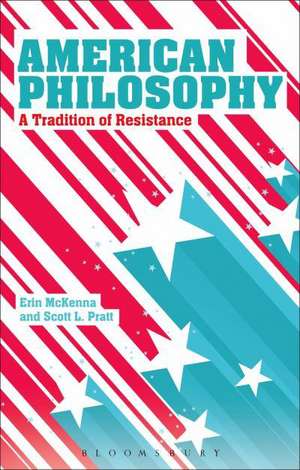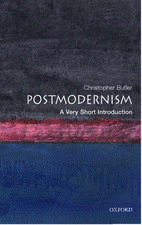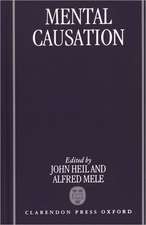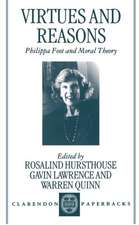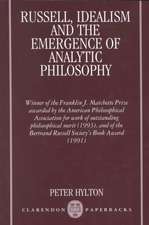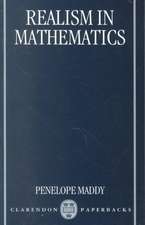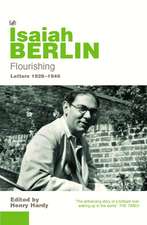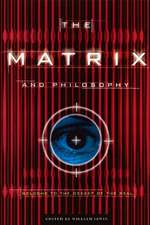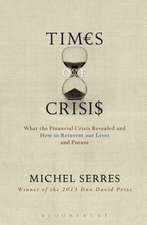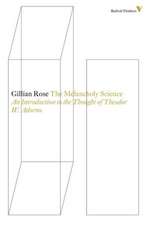American Philosophy: From Wounded Knee to the Present
Autor Professor Erin McKenna, Professor Scott L. Pratten Limba Engleză Paperback – 25 feb 2015
| Toate formatele și edițiile | Preț | Express |
|---|---|---|
| Paperback (1) | 231.46 lei 6-8 săpt. | |
| Bloomsbury Publishing – 25 feb 2015 | 231.46 lei 6-8 săpt. | |
| Hardback (1) | 839.59 lei 6-8 săpt. | |
| Bloomsbury Publishing – 25 feb 2015 | 839.59 lei 6-8 săpt. |
Preț: 231.46 lei
Preț vechi: 261.30 lei
-11% Nou
Puncte Express: 347
Preț estimativ în valută:
44.30€ • 45.76$ • 36.87£
44.30€ • 45.76$ • 36.87£
Carte tipărită la comandă
Livrare economică 25 martie-08 aprilie
Preluare comenzi: 021 569.72.76
Specificații
ISBN-13: 9781441175182
ISBN-10: 1441175180
Pagini: 440
Dimensiuni: 169 x 244 x 25 mm
Greutate: 0.7 kg
Editura: Bloomsbury Publishing
Colecția Bloomsbury Academic
Locul publicării:London, United Kingdom
ISBN-10: 1441175180
Pagini: 440
Dimensiuni: 169 x 244 x 25 mm
Greutate: 0.7 kg
Editura: Bloomsbury Publishing
Colecția Bloomsbury Academic
Locul publicării:London, United Kingdom
Caracteristici
Features a companion website with links to relevant texts, music and historical and cultural resources
Notă biografică
Erin McKenna is Professor of Philosophy at Pacific Lutheran University, USA.Scott L. Pratt is Professor of Philosophy at the University of Oregon, USA.
Cuprins
Prologue Chapter 1: Introduction PART I-1894-1918Chapter 2: Defining Pluralism: Simon Pokagon, Ida B. Wells-Barnett, and T. Thomas Fortune. Chapter 3: Evolution and American Indian Philosophy Chapter 4: Feminist Resistance: Anna Julia Cooper, Jane Addams, and Charlotte Perkins GilmanChapter 5: Labor, Empire and the Social Gospel: Washington Gladden, Walter Rauschenbusch, and Jane AddamsChapter 6: A New Name for an Old Way of Thinking: William James Chapter 7: Making Ideas Clear: Charles Sanders Peirce Chapter 8: The Beloved Community and its Discontents: Josiah Royce and the RealistsChapter 9: War, Anarchism, and Sex: Emma Goldman and Margaret Sanger Chapter 10: Democracy and Social Ethics: John Dewey Chapter 11: Naturalism and Idealism, Fear and Conventionality: Mary Whiton Calkins and Elsie Clews ParsonsPART II-1918-1939Chapter 12: Race Riots and the Color Line: W. E. B. Du Bois Chapter 13: Philosophy Reacts: Hartley Burr Alexander and Morris R. Cohen Chapter 14: Creative Experience: Mary Parker Follett Chapter 15: Cultural Pluralism: Horace Kallen and Alain Locke PART III-1939-1979Chapter 16: War and the Rise of Logical Positivism: Otto Neurath and Rudolf CarnapChapter 17: McCarthyism and American Empiricism: Jacob Loewenberg, Henry Sheffer, C. I. Lewis, and Charles MorrisChapter 18: The Linguistic Turn: Gustav Bergmann, May Brodbeck, and W. V. O. QuineChapter 19: Resisting the Turn: Donald Davidson, Wilfrid Sellars, and the "Pluralist Rebellion"PART IV-Applying PhilosophyChapter 20: Philosophy Outside: John Muir, Aldo Leopold, Joseph Wood Krutch, and Rachel CarsonChapter 21: Economics and Technology: Lewis Mumford, C. Wright Mills, and John Kenneth GalbraithChapter 22: Politics: John Rawls, Robert Nozick, Michael Sandel, Martha Nussbaum, and Noam ChomskyPART V-Social RevolutionsChapter 23: Civil Rights: Martin Luther King, Jr., Richard Wright and James Baldwin.Chapter 24: Black Power: Malcolm X, James Cone, Audre Lorde, bell hooks, Angela Davis, and Cornel WestChapter 25: Latin American American Philosophy Chapter 26: Red Power, Indigenous Philosophy: Vine Deloria, Jr. and Contemporary American Indian ThoughtChapter 27: Feminism Chapter 28: Engaged Philosophy and the Environment Part VI: American Philosophy TodayChapter 29: Recovering and Sustaining the American Tradition Chapter 30: American Philosophy Revitalized Chapter 31: The Spirit of American Philosophy in the New Century
Recenzii
The most comprehensive and inclusive introductory guide to how philosophy in the United States has served a role in the history of domination and the struggle for liberation of all of its groups. [...] This splendid work is necessary reading for students, philosophers, historians, and sociologists.
Extraordinary inclusivity is the word for this stunning, historical, and interpretive presentation of the rich and complex tapestry of American Philosophy. This book will be the primary scholarly resource for decades to come.
This book reminds us of why philosophy matters. By expanding who counts as American philosophers and situating them in the struggles of their times, Pratt and McKenna not only show the origins of present-day problems but also offer perceptive insights and useful resources that are still sorely needed.
Tired of histories of American philosophy that celebrate the usual suspects-Peirce, James, Dewey and the boys-and leave it at that? In America the Philosophical, I argued that America boasts far more important thinkers than ever get the Good Housekeeping seal from establishment philosophy departments. Now, in American Philosophy: From Wounded Knee to the Present, Erin McKenna and Scott Pratt spectacularly blow up the petrified picture of the field, throwing open the subject to an array of critical thinkers who mattered tremendously in America's struggle to be a more decent and enlightened society. A history of American philosophy that explains and interprets-in addition to traditional stalwarts-such iconoclastic figures as Ida B. Wells-Barnett, Emma Goldman, Margaret Sanger, W.E.B. Du Bois, Aldo Leopold, James Baldwin, and Bell Hooks? Were they a part of American philosophy? You bet they were. At least of any American philosophy worth a dime in the real world.
Extraordinary inclusivity is the word for this stunning, historical, and interpretive presentation of the rich and complex tapestry of American Philosophy. This book will be the primary scholarly resource for decades to come.
This book reminds us of why philosophy matters. By expanding who counts as American philosophers and situating them in the struggles of their times, Pratt and McKenna not only show the origins of present-day problems but also offer perceptive insights and useful resources that are still sorely needed.
Tired of histories of American philosophy that celebrate the usual suspects-Peirce, James, Dewey and the boys-and leave it at that? In America the Philosophical, I argued that America boasts far more important thinkers than ever get the Good Housekeeping seal from establishment philosophy departments. Now, in American Philosophy: From Wounded Knee to the Present, Erin McKenna and Scott Pratt spectacularly blow up the petrified picture of the field, throwing open the subject to an array of critical thinkers who mattered tremendously in America's struggle to be a more decent and enlightened society. A history of American philosophy that explains and interprets-in addition to traditional stalwarts-such iconoclastic figures as Ida B. Wells-Barnett, Emma Goldman, Margaret Sanger, W.E.B. Du Bois, Aldo Leopold, James Baldwin, and Bell Hooks? Were they a part of American philosophy? You bet they were. At least of any American philosophy worth a dime in the real world.
